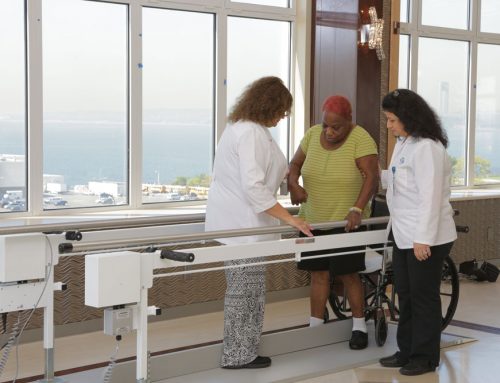Bedsores—also called pressure sores—are injuries to skin and tissue due to prolonged pressure on the skin. Those most prone to them are frail, elderly people who cannot easily turn themselves in bed. If not treated properly, pressure ulcers can cause infection and inflammation. So, do your best to prevent any complications. Appropriate nursing care can treat and heal them, and/or prevent them from getting worse.
What Causes Pressure Ulcers?
Pressure sores occur when pressure against the skin limits blood flow to nearby skin and tissue. The heart pumps blood around the body, but extended pressure on one place reduces blood flow, damaging skin and tissue. If you are ill, bedridden or in a wheelchair, you are more at risk of at risk of developing bedsores.

Among immobile seniors, areas of the body near a bone that aren’t well padded with muscle or fat can develop sores. Such people are prone to developing pressure ulcers on the spine, tailbone, shoulder blades, hips, heels and elbows.
Proper nursing seeks to tackle the causes of pressure ulcers such as when skin rubs against bedding or clothing. Other risk factors for bedsores include diabetes, incontinence, lack of sensory perception, and poor nutrition and hydration.
What Are The Four Stages Of Pressure Ulcers?
Stage one ulcers show superficial reddening of the skin that does not whiten when pressed. If diagnosed and treated immediately, a stage one bedsore usually heals within three or four days.
Stage two pressure ulcers involve superficial lesions of the skin resembling an abrasion or popped blister. With appropriate treatment such wounds may heal in four days to three weeks.
Stage three ulcers go deeper, forming an open crater-like sore, but muscle or bone are not exposed. The main risk is infection and serious complications, including an infection entering the bloodstream. With sustained treatment healing may take up to four months, depending on the depth of the sore.
Stage four pressure ulcers expose muscle and bone and are very difficult to treat. Tendons, nerves, and joints may be damaged, and the condition is potentially life-threatening.
Prevention
To prevent pressure ulcers, inspect your skin carefully and take good care of it. Pressures sours need to be cleaned regularly. If not cleaned, they will cause infection and inflammation, which will make it difficult to manage. Seek medical assistance.
Avoid smoking, make sure you are always well hydrated, and take regular exercise if you can. Avoid sitting or lying in one position for a long time to reduce pressure on any one part of your body. Talk to nurses to see if strategically placed cushions can make you feel more comfortable.
Haym Salomon Home for Nursing & Rehabilitation in Brooklyn NY is proud of the high quality of skilled nursing care it provides for patients. Our compassionate, skilled and friendly nursing staff are used to dealing with pressure ulcers of all kinds.
Do call us today to find out about our care services and how our finance coordinators can help smooth out any issues you may have.
This content comprises informative and educational resources only and can not be considered as a substitute for professional health or medical guidance. Reliance on any information provided in this article is solely at your own risk. If you have any inquiries or apprehensions about your medical condition or health goals, talk with a licensed physician or healthcare provider.






Leave A Comment